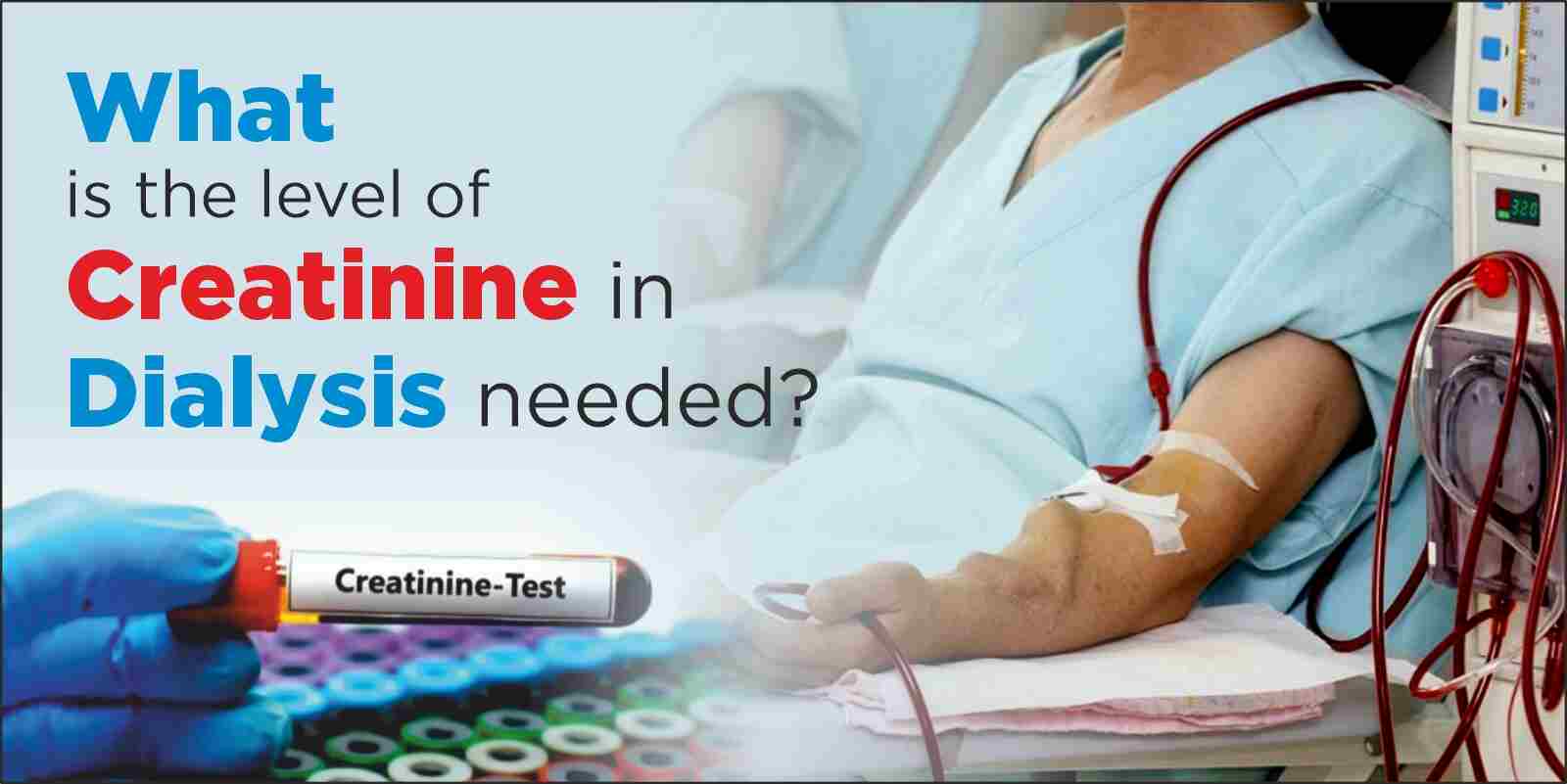
Determining the ideal creatinine levels for dialysis patients involves understanding complex medical parameters without a straightforward magic number. If you or someone close to you experiences kidney problems, medical professionals likely frequently use the term "creatinine" during discussions. This medical term presents an intimidating facade, yet upon decomposition into its component parts, it reveals straightforward simplicity. An exploration into the significance of creatinine levels becomes essential when discussing their implications for dialysis treatment. Before delving into other topics let us establish an understanding of what creatinine actually is by examining its fundamental nature.
The compound known as creatinine represents the waste product that muscle tissues expel upon completing their metabolic activities which results in its accumulation. The human body maintains a continuous production of this substance while the kidneys perform their essential function of eliminating it through urinary excretion. In situations where your kidneys perform poorly or cease functioning altogether, creatinine begins to accumulate within your bloodstream. Medical professionals maintain vigilant monitoring of creatinine levels because these measurements provide them with reliable indicators of renal performance status.
Creatinine levels depend on factors like muscle mass, age, and overall health. Any changes in these levels can be an indicator of an underlying renal issue. A primer of normal creatinine levels by age is as follows:
Worry if your creatinine level is consistently high (above 1.3 mg/dL for men, 1.1 mg/dL for women), especially with fatigue, swelling, or urine changes. See a doctor for advice immediately.
A urine creatinine normal range above 5.0 mg/dL (but lower in some cases), can signal kidney failure, meaning your kidneys are struggling to filter out wastes. In end-stage kidney disease (ESKD), levels can go even higher.
Now, you must be wondering, “How much creatinine for dialysis?” The medical field lacks a definitive creatinine threshold that unequivocally signals the necessity to initiate dialysis treatment. Medical professionals evaluate numerous elements beyond creatinine levels such as your glomerular filtration rate or GFR, which assesses kidney filtering efficiency along with your symptoms and general health condition.
The majority of individuals requiring dialysis treatment exhibit creatinine measurements that significantly exceed the threshold of 5, i.e. 5 is normally considered to be the dialysis creatinine level. The numerical range extends from zero through seven inclusive. The concentration of 0 mg/dL represents a measurement often seen in medical evaluations, while patients frequently attain readings up to 10 mg/dL during assessments. Before initiating dialysis, treatment patients must demonstrate blood glucose levels measuring 0 mg/dL or higher.
There exist certain individuals who require dialysis treatment despite not displaying the level of creatinine for dialysis in the tests. Several individuals may experience extremely elevated levels yet continue to function without noticeable discomfort for extended periods. The determination of dependency factors remains highly individualized and varies according to personal characteristics.
Since the normal range for adults is around 0.6 to 1.3 mg/dL, a level of 1.7 is definitely on the higher side. However, don’t panic! There are many natural ways to bring it down and keep your kidneys happy and healthy.
Want to keep your creatinine levels in check the natural way? Ayurveda has got your back! Ayurvedic treatment for creatinine makes use of these herbs that help regulate creatinine levels and support kidney health:
These herbs are fantastic for keeping creatinine levels in check, however, make sure to visit a reliable hospital like Karma Ayurveda for the natural treatment for creatinine. Making smart choices in your daily routine not only controls creatinine but also strengthens your kidneys! Here are some must-follow diet tips for anyone looking to improve kidney health:
By making these small but effective changes, you can naturally manage your creatinine levels and keep your kidneys happy and healthy!
Individuals experiencing rising creatinine levels yet not reaching dialysis thresholds often find themselves questioning potential actions to decelerate this progression. Although direct reduction of creatinine levels remains unachievable, you can support kidney function through the following actions:
Dialysis is not determined by a specific creatinine number. The majority of patients begin dialysis when their levels are between 5.0 and 7.0 mg/dL, but factors such as symptoms and overall health are heavily influenced. Work closely with your doctor if you have kidney disease, watch for symptoms and do everything you can to be as healthy as possible. You are not alone in this folks!

Certificate no- AH-2023-0186
JAN 05,2023-JAN 04,2026
"Ayurveda is not just a system of medicine; it's a way of life. Connect with us to embrace a lifestyle that nurtures your body, mind, and soul."
Book Consultation Now